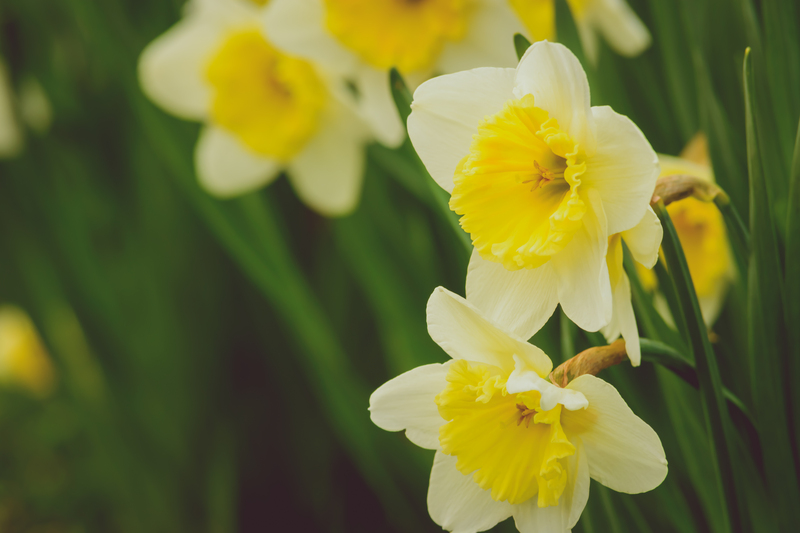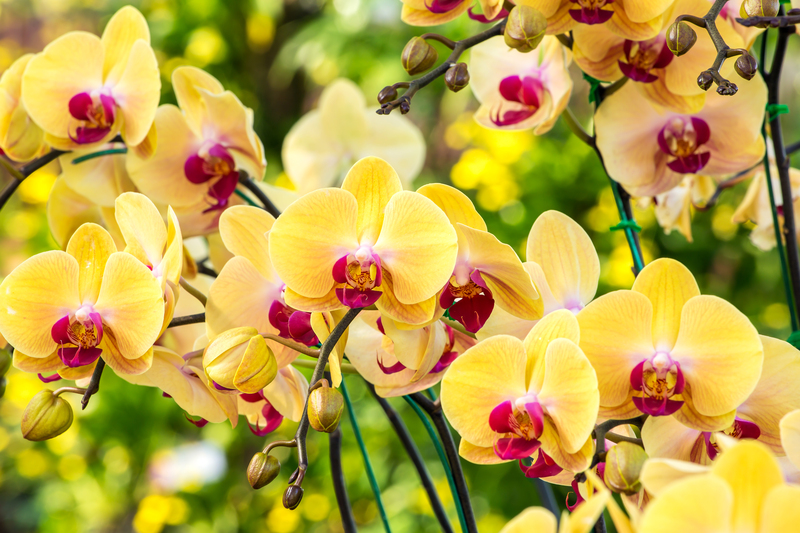Green Wonders - 10 Evergreen Trees Perfect for Tight Garden Spaces
Ever dreamt of having lush greenery in your compact backyard or small urban garden? Good news! You don't have to give up the idea of trees just because you're short on space. Evergreen trees for small gardens are a fantastic way to add year-round interest, privacy, texture, and even color to your outdoor sanctuary.
In this comprehensive guide, we delve into the world of green wonders - the top 10 evergreen trees that thrive in limited spaces. Whether you're creating a cozy patio retreat, screening an urban fence, or seeking a majestic focal point, our list of compact evergreen trees has something for every aspiring gardener. Read on to discover varieties that stay beautiful through all seasons, require minimal maintenance, and fit snugly even in the tightest of garden beds.
Why Choose Evergreen Trees for Compact Spaces?
Evergreen trees are renowned for keeping their foliage throughout the year, offering consistent beauty and privacy. But what makes them ideal for small gardens?
- Year-Round Interest: Unlike deciduous species, evergreens keep their leaves or needles, ensuring your garden never feels bare, even in winter.
- Low Maintenance: Many compact evergreen trees require less pruning, watering, and care compared to larger or deciduous counterparts.
- Wildlife Friendly: Evergreens provide shelter and food for birds and beneficial insects all year long.
- Air Purification: Trees act as natural air cleaners, making your urban garden fresher and healthier.
- Versatility: The right tree can serve as a privacy screen, windbreak, or simply as a striking landscape feature.

Top 10 Evergreen Trees Perfect for Tight Garden Spaces
Below, we profile the best narrow evergreen trees for limited gardens, describing their sizes, growing habits, and unique features. Most options are readily available and suitable for a variety of climates.
1. Emerald Green Arborvitae (Thuja occidentalis 'Smaragd')
- Height: 10-15 feet
- Width: 3-4 feet
- Hardiness: USDA zones 3-8
The Emerald Green Arborvitae stands as one of the most popular columnar evergreens for small spaces. Its tidy, narrow habit makes it ideal as a living hedge, privacy screen, or singular vertical accent. The lush, bright green foliage keeps its color through even the harshest winter.
2. Sky Pencil Holly (Ilex crenata 'Sky Pencil')
- Height: 6-8 feet
- Width: 2 feet
- Hardiness: USDA zones 5-9
If you crave bold visual interest, the Sky Pencil Holly is the answer. Its dramatic upright form makes it one of the best evergreen trees for tight corners and containers. This holly is slow-growing, needs minimal shaping, and offers year-round dark glossy leaves.
3. Japanese Yew (Taxus cuspidata)
- Height: 4-8 feet (dwarf varieties)
- Width: 3-6 feet
- Hardiness: USDA zones 4-7
Japanese Yews are classic, shade-tolerant evergreens with dense, feathery foliage. Compact cultivars work well as foundation shrubs, low screens, or clipped topiaries. Their adaptability makes them easy choices for tricky, dim garden spots.
4. Little Gem Magnolia (Magnolia grandiflora 'Little Gem')
- Height: 12-20 feet
- Width: 7-10 feet
- Hardiness: USDA zones 7-10
The Little Gem Magnolia combines the grandeur of a Southern magnolia with a compact form. This small evergreen tree features glossy green leaves and showy, fragrant white flowers from spring into summer. Its upright habit makes it practical for courtyards and patios where space is at a premium.
5. Dwarf Alberta Spruce (Picea glauca 'Conica')
- Height: 6-8 feet
- Width: 3-5 feet
- Hardiness: USDA zones 3-6
A Dwarf Alberta Spruce looks like a classic Christmas tree in miniature. With its dense, pyramidal shape and slow growth, it's perfect for flanking doorways, adding texture to mixed beds, or being the highlight of a small garden nook.
6. Italian Cypress (Cupressus sempervirens)
- Height: 20-30 feet
- Width: 3-5 feet
- Hardiness: USDA zones 7-10
If you desire a taste of Mediterranean charm, try the slender Italian Cypress. While tall, their pencil-thin habit can be planted in tight spaces along fences, driveways, or as formal avenues. These trees are drought tolerant and require little pruning to retain their elegant shape.
7. Bay Laurel (Laurus nobilis)
- Height: 8-12 feet (can be pruned smaller)
- Width: 5-8 feet
- Hardiness: USDA zones 8-10
This aromatic evergreen tree doubles as a culinary delight. Bay Laurel can be grown as a tree, large shrub, or even in containers. Its glossy leaves are a flavorful kitchen staple, and its tidy, upright habit is ideal for those with limited ground space.
8. Photinia 'Red Robin' (Photinia x fraseri 'Red Robin')
- Height: 10-12 feet
- Width: 6-8 feet
- Hardiness: USDA zones 7-9
Valued for its vibrant *new foliage that emerges red and matures to shiny green*, Red Robin Photinia is a stunning addition to any small plot. It's great as a privacy screen, hedge, or standalone specimen, offering seasonal color in a compact form.
9. Portuguese Laurel (Prunus lusitanica)
- Height: 10-18 feet
- Width: 6-8 feet
- Hardiness: USDA zones 6-9
Portuguese Laurel is a tough, elegant, and fine-leaved evergreen that tolerates pruning. Its manageable size and attractive red stems make it suitable for small garden borders, driveways, and stylish topiary forms.
10. Kousa Dogwood 'Summer Gold' (Cornus kousa 'Summer Gold')
- Height: 8-12 feet
- Width: 6-8 feet
- Hardiness: USDA zones 5-8
An outstanding compact tree for year-round interest, the Kousa Dogwood 'Summer Gold' offers variegated evergreen leaves with gold margins, spring flowers, and red fruits in the fall. Its moderate growth and upright habit suit small gardens, patios, or even large containers.
How to Choose the Right Evergreen Tree for Your Small Garden
Not all trees suit every situation! When selecting the best tree for a small garden, keep these factors in mind:
- Size: Consider the mature height and width. Look for words like "dwarf," "compact," or "columnar" in plant names.
- Growth Rate: Choose slow to moderate growers to avoid frequent pruning.
- Sun/Shade Requirements: Check how much sunlight your chosen spot receives daily.
- Soil Type: Most evergreens prefer well-draining soil enriched with organic matter.
- Climate and Hardiness Zone: Match the tree's hardiness to your local climate for optimal survival.
- Function: Are you seeking privacy, a focal point, or perhaps ornamental interest?
Planting and Care Tips for Evergreen Trees in Tight Spaces
Planting in small spaces requires some special techniques to make sure your new tree thrives:
- Prepare the Soil: Loosen the planting area and enrich with compost. Avoid digging holes too deep; plant at the same depth as the nursery pot.
- Allow Room to Mature: Even small trees need some space for roots and canopy--avoid crowding too closely to buildings or fences.
- Water Regularly: Young evergreens need consistent moisture until established, especially in pots or raised beds.
- Mulch: A layer of organic mulch helps maintain soil moisture and keeps weeds at bay.
- Prune Carefully: Most compact evergreens need little pruning, but trim as needed to remove dead branches or shape lightly.
- Fertilize Moderately: Over-fertilizing can cause unsightly growth--feed lightly with balanced fertilizer in spring if necessary.

FAQs: Evergreen Trees for Small Spaces
Can you grow evergreens in containers?
Absolutely! Many of these small evergreen trees do exceptionally well in large pots or planters. Use quality potting mix and ensure good drainage. Rotate container trees seasonally for even growth and bring frost-sensitive varieties under cover in winter.
How often should I water newly planted evergreen trees?
Water deeply and regularly for the first one to two years. Check soil moisture weekly during dry spells. After establishment, most evergreens are moderately drought-tolerant, but may need supplemental watering in hot or windy periods.
What evergreen trees are best for privacy in small yards?
Emerald Green Arborvitae, Sky Pencil Holly, and Italian Cypress are top picks for privacy screens or borders in limited spaces thanks to their columnar and dense growth.
When is the best time to plant evergreens?
Early spring or fall are the best seasons for planting evergreen trees. Cooler temperatures help reduce transplant shock and give roots time to grow before extreme weather arrives.
Conclusion: Transform Your Small Garden with Evergreen Wonders
There's no reason to skip trees in a small yard! With the diverse range of evergreen trees for tight garden spaces, even the tiniest plot can be transformed into a lush retreat. From vertical accents and screening solutions to year-round color and wildlife habitat, these green wonders are sure to elevate your garden's appeal.
Start by evaluating your space, sunlight, and climate, then pick your favorites from our top 10 list above. With a little planning and care, you'll enjoy the beauty and benefits of evergreens for many years to come. Make the most of your small garden--plant an evergreen tree and watch your outdoor space come alive, season after season!
Popular Related Topics:
- Best Small Trees for Patios and Containers
- Creating Privacy with Narrow Evergreens
- Low Maintenance Landscaping Ideas
- Evergreen Shrubs vs Small Trees: Which is Best?
Ready to transform your garden? Visit your local nursery or garden center and ask about the best compact evergreen trees for your region today!



